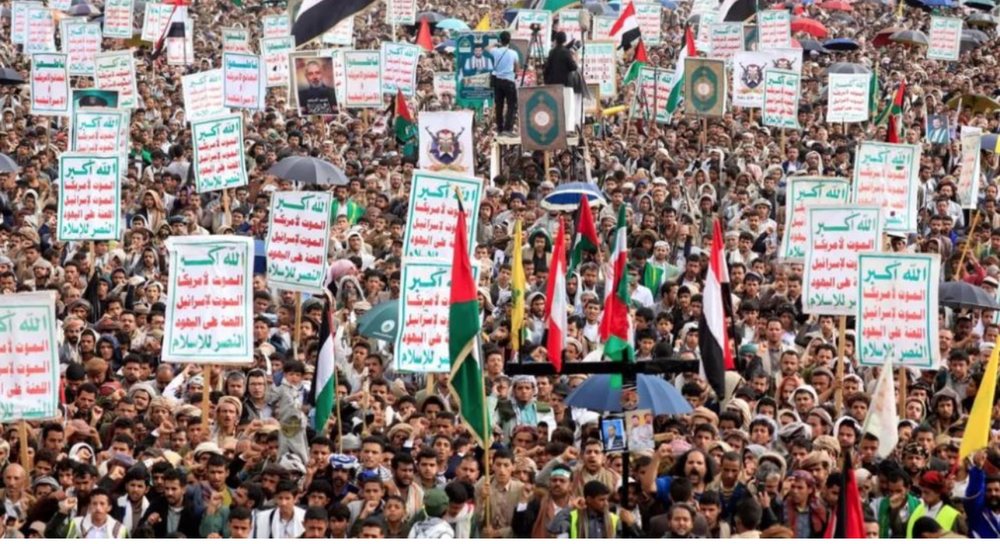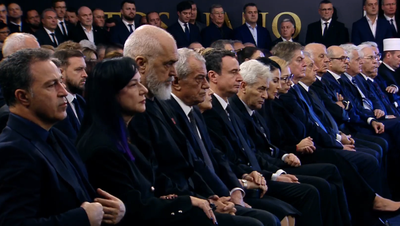
A powerful appeal has come from some of the world's most renowned academics and economists, who have addressed the Israeli government with an open letter, describing the humanitarian situation in Gaza as alarming and the planned new policies as unacceptable. The letter was published by the Italian daily La Stampa.
“We write with great concern about the growing hunger in Gaza and the Israeli government’s plan to relocate its citizens to a so-called ‘humanitarian city.’ As human beings, economists and scientists, we call for an immediate end to any policy that exacerbates the spread of hunger. It is clear that Hamas must be held accountable for the October atrocities and the punishment of the hostages. However, this does not absolve the Israeli military of responsibility for controlling the entry and distribution of aid,” said the document signed by Nobel laureate Daron Acemoglu and 22 colleagues, including Philippe Aghion, Joseph E. Stiglitz and Guido Tabellini.
According to the Nobel laureates, data from the United Nations World Food Program speak of a deep humanitarian crisis, with about a third of Gaza's more than 2.1 million residents going days without food. "The widespread hunger is documented by insufficient aid deliveries, residents' own testimonies and stratospheric food prices. Not only the United Nations, but also the market is signaling hunger: prices of basic foods in Gaza have increased tenfold compared to three months ago," they emphasize.
The document also explains that “the failure of the United Nations to distribute aid and their replacement with a limited number of Gaza Humanitarian Foundation centers, coordinated by Israel, has created deadly chaos: crowds panicking over meager rations, with over a thousand dead or injured in their attempts to survive.”
In response to international pressure, the Israeli government has allowed more aid to enter after July 26, but according to the Nobel laureates, the quantities still remain insufficient and the health situation is critical.
Daron Acemoglu stressed that the “humanitarian city” plan would further worsen the situation, displacing hundreds of thousands of residents in a restricted area, depriving them of freedom of movement and dignity. “It is unacceptable that Israel treats its citizens as a burden to be borne rather than as human beings who have the right to dignified living conditions. While the residents of Gaza would be the first to be affected, the Israelis themselves would also pay a high price and the economic consequences would be catastrophic,” he said.
The Nobel laureates warn that, if current policies continue, European governments could impose harsh sanctions that would harm science, trade and employment in Israel. In addition, financial rating agencies would continue to reduce the credibility of sovereign debt, increasing the cost of borrowing. Professionals would be forced to emigrate en masse, while the high-tech sector, which accounts for about 20% of GDP and a third of tax revenues, would face a rapid decline, depriving Israel of its main engine of economic growth.
In their appeal, the Nobel laureates call on the Israeli government, Prime Minister Netanyahu, and the Knesset parliament to:
to guarantee sufficient food supplies and medical aid,
to withdraw from plans to establish camps for the citizens of Gaza,
to issue an official statement rejecting proposals for population restriction and control,
to reaffirm commitment to human rights and international law,
and in good faith to establish a ceasefire agreement that improves the humanitarian situation, returns hostages, and ends the war.
"Only in this way can Israel avoid mass starvation, preserve its democratic character, and protect its long-term economic prospects," the Nobel laureates conclude in their open letter.






















